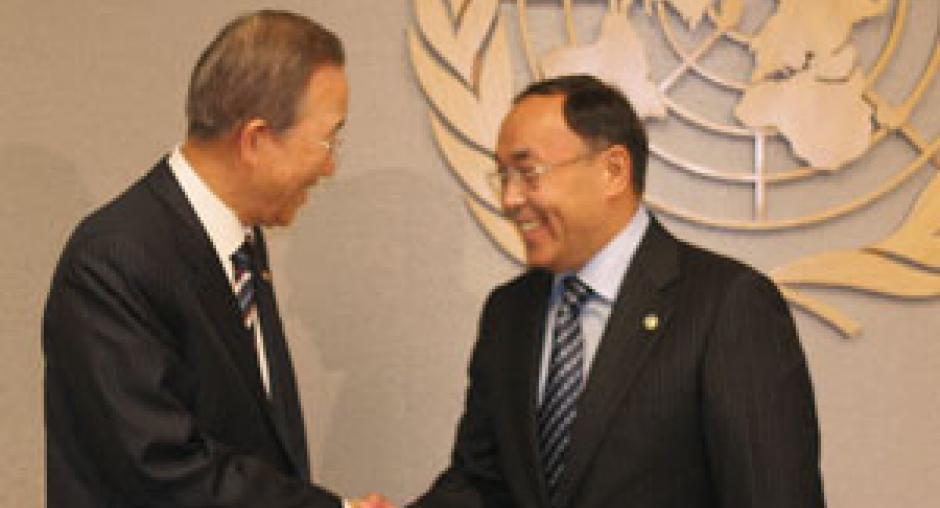OSCE determined to respond to emerging security challenges, Chairperson tells UN Security Council

NEW YORK, 5 February 2010 - In light of the daunting challenges facing the international community, the OSCE is determined to contribute meaningfully to the enhancement of security in its region and beyond, the OSCE Chairperson-in-Office, Kazakhstan's Secretary of State and Foreign Minister Kanat Saudabayev, told the UN Security Council today.
"I strongly believe that a better use of the OSCE's capabilities would help the UN and its Security Council to more effectively prevent security threats and respond to them," Saudabayev said. "We intend to strengthen the OSCE in every possible way and to enhance its effectiveness and its ability to adequately respond to emerging challenges and threats."
Saudabayev mentioned that, to a large extent, the implementation of the Chairmanship's priorities will depend on the participating States' ability to enhance trust among themselves and to eliminate the vestiges of Cold War dividing lines that still exist in the OSCE area.
Saudabayev emphasized to the Security Council that the Kazakh Chairmanship will make an effort to contribute to the resolution of protracted conflicts with particular attention to those in the post-Soviet area. "Taking into account our shared history and closeness in terms of mentality, we hope to give some impetus to the efforts of our partners involved in that complex process," he said.
Saudabayev noted that the Kazakh Chairmanship will closely monitor protracted conflicts and identify all signs of potential escalation making good use of the OSCE preventive mechanisms.
The Chairperson-in-Office will travel to the South Caucasus on 15 February. He mentioned that the OSCE, the UN, and the European Union co-chair the Geneva Discussions. "Further close co-ordination among all parties is of great importance to promote stability in the South Caucasus and to create favorable conditions for their peaceful settlement," he added.
The Chairperson-in-Office also underscored the importance of OSCE-UN co-operation in promoting security and stability in South-Eastern Europe. In Kosovo, Saudabayev said, the OSCE Mission will continue to implement its mandate as an integral part of the UN Interim Administration Mission in Kosovo (UNMIK), based on the UN Security Council resolution 1244.
Beyond these specific examples of OSCE-UN co-operation, the Chairperson-in-Office underscored the broader potential of the OSCE as a forum for comprehensive and inclusive security dialogue. "A relevant dialogue will provide us with an opportunity to strengthen relations of the OSCE with the UN, in accordance with the 1999 Platform for Co-operative Security. We count on the contribution of the UN and its structures to this process," he added.
Saudabayev underscored that such dialogue should include the OSCE Partners for Co-operation. Last December, at the Athens Ministerial Council, the Organization welcomed Australia as the 12th Partner for Co-operation, a fact that shows the Organization's determination to broaden dialogue with partners beyond its zone of responsibility, in order to maintain international peace and security.
